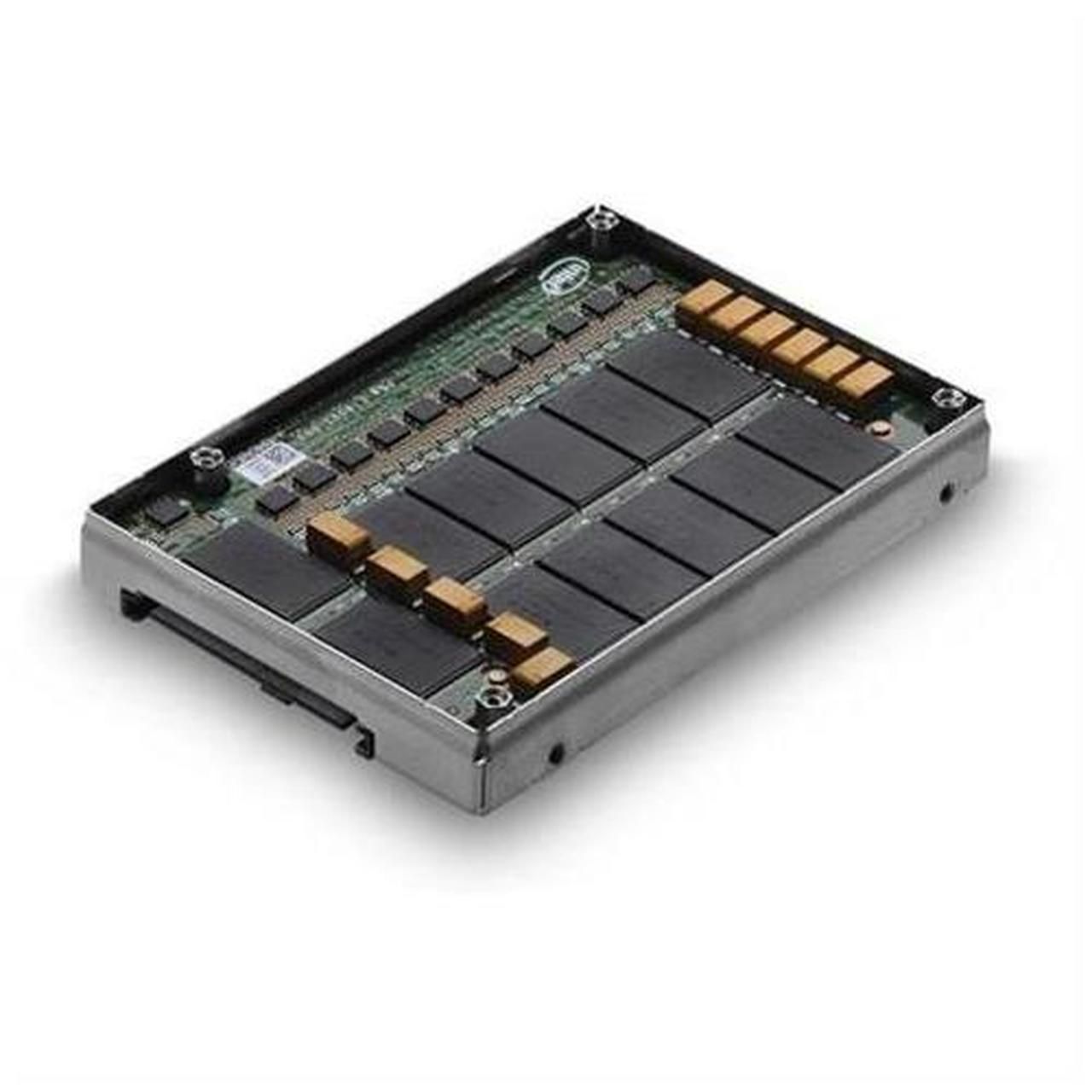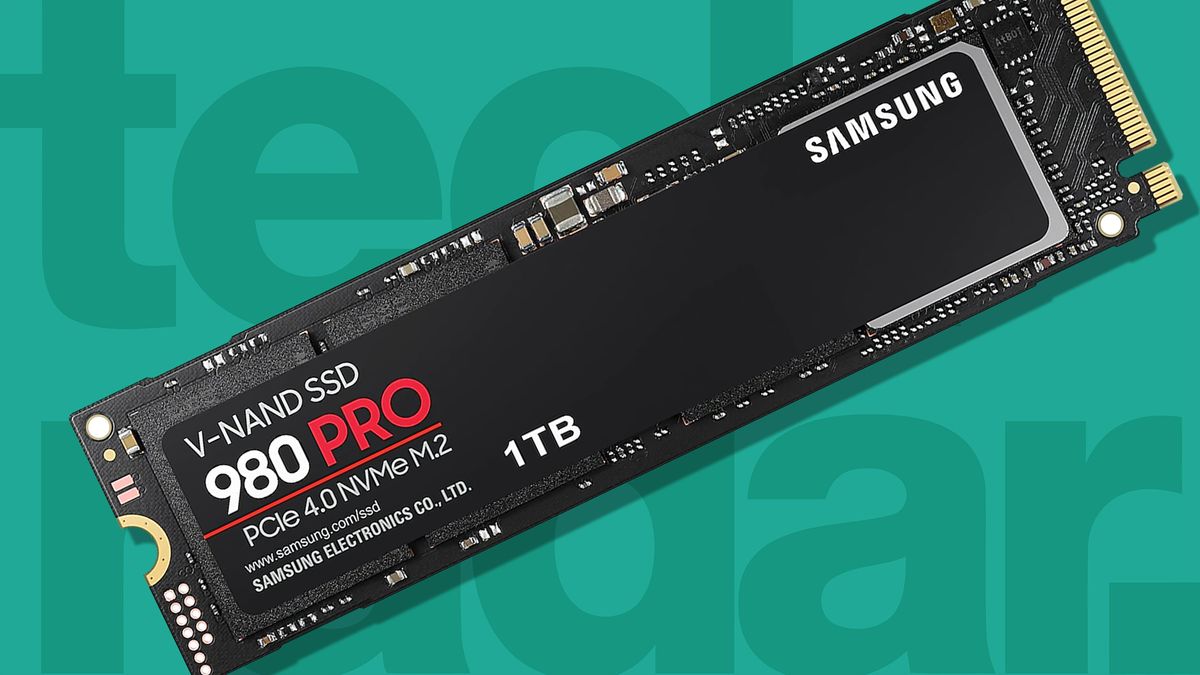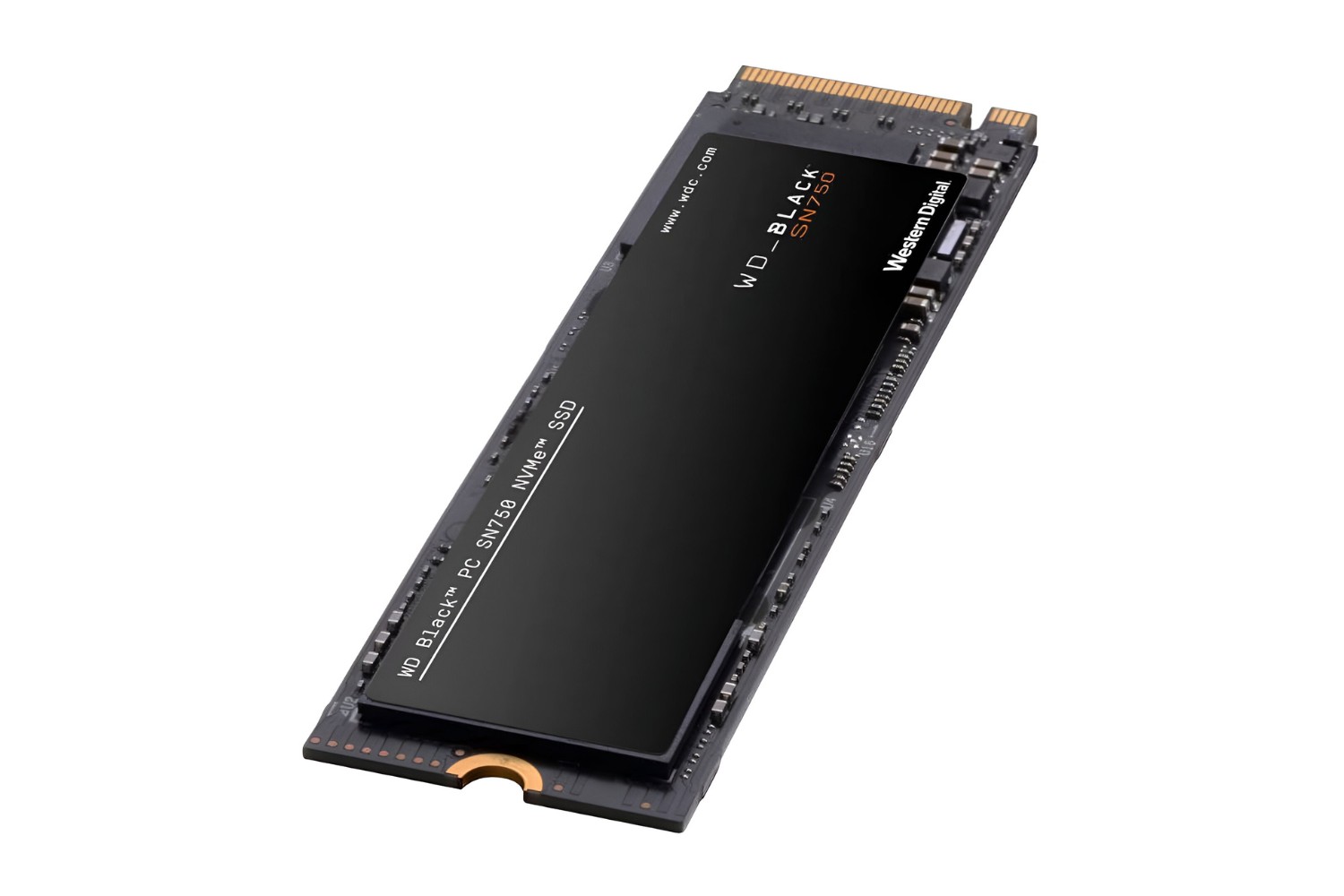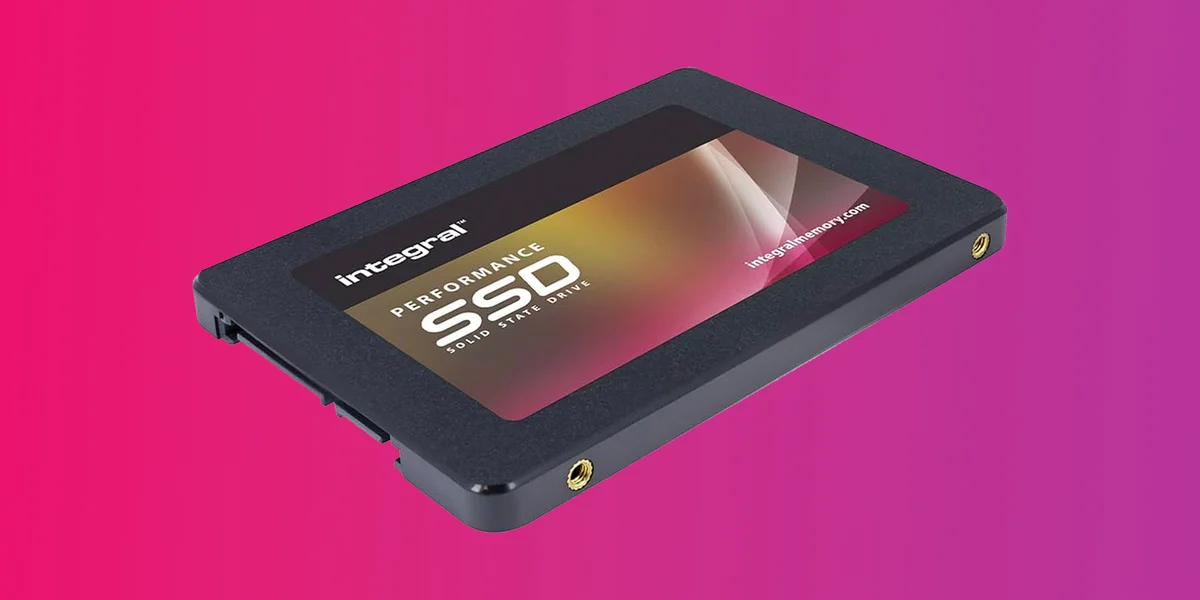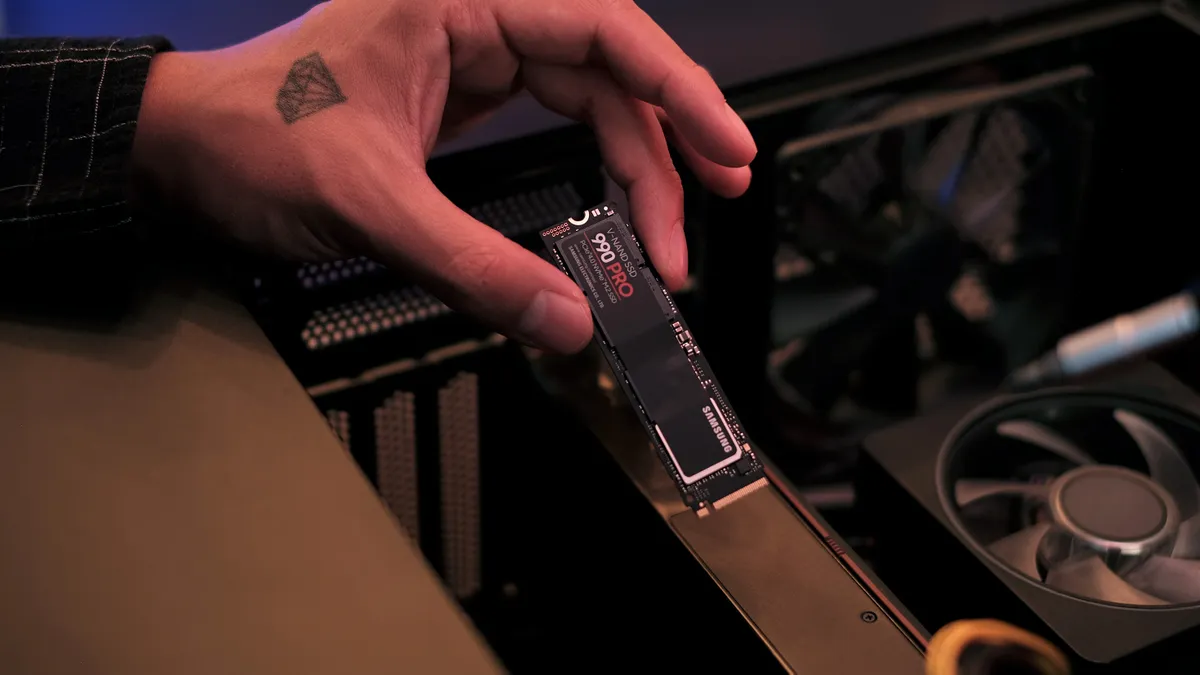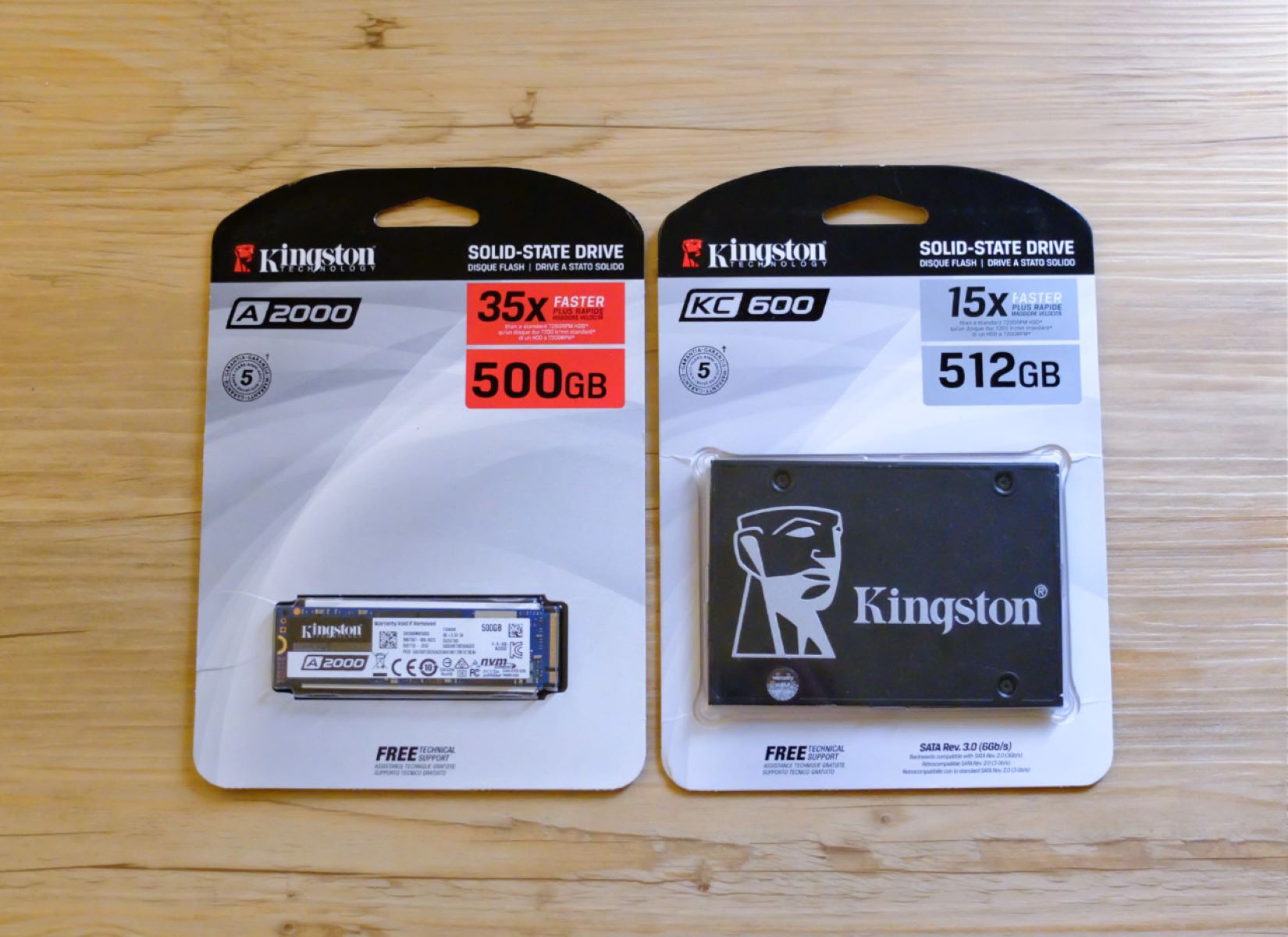Introduction
Welcome to our comprehensive guide on Opal SSD! In this article, we will explore what exactly Opal SSD is, how it works, the benefits of using it, its comparison to other types of SSDs, its impact on data security, and its relevance in enterprise environments.
In this digital age, the demand for high-performance and secure storage solutions is ever-increasing. Traditional hard disk drives (HDDs) are gradually being replaced by solid-state drives (SSDs) due to their faster speed, lower power consumption, and reduced heat production. One type of SSD that has gained significant popularity is the Opal SSD.
Opal SSD stands for Opal Self-Encrypting Drive. It is a type of SSD that provides hardware-based encryption, ensuring the security of stored data. The Opal Storage Specification was developed by the Trusted Computing Group (TCG), a consortium of industry leaders focused on establishing security standards. This specification outlines the requirements for implementing Opal SSDs, ensuring interoperability among different manufacturers.
Opal SSDs work by encrypting the data at the hardware level, meaning the encryption and decryption processes take place within the SSD itself, independent of the operating system. This provides a significant advantage over software-based encryption, as it offloads the encryption workload from the CPU, resulting in improved system performance.
One of the key benefits of using Opal SSDs is their enhanced security. The hardware-based encryption ensures that all data stored on the drive is protected, even if it is stolen or accessed without authorization. Additionally, Opal SSDs support advanced security features such as secure erase, which allows for the secure deletion of data, making it unrecoverable.
Opal SSDs are also known for their compatibility and ease of use. They work seamlessly with various operating systems and can be easily integrated into existing systems without requiring any additional software installations or changes to the infrastructure. This makes them a convenient solution for both individual users and businesses.
In the following sections, we will delve deeper into how Opal SSDs work, the advantages they offer over other SSD types, their impact on data security, and their role in enterprise environments. So, let’s get started!
What is Opal SSD?
Opal SSD, short for Opal Self-Encrypting Drive, is a type of solid-state drive (SSD) that offers hardware-based encryption capabilities. It is designed to provide enhanced security for stored data, making it an ideal choice for individuals and businesses seeking reliable data protection.
The Opal Storage Specification, developed by the Trusted Computing Group (TCG), outlines the requirements for implementing Opal SSDs. This specification ensures compatibility and interoperability among different manufacturers, allowing users to choose from a wide range of Opal SSD options.
Opal SSDs utilize advanced encryption algorithms to encrypt and decrypt data at the hardware level. This means that all encryption and decryption processes are performed within the SSD itself, independent of the operating system. As a result, the encryption workload is offloaded from the CPU, resulting in improved system performance.
One key feature of Opal SSDs is their self-encrypting capability. This means that the drive automatically encrypts all data written to it and decrypts it when accessed, without requiring any user intervention. This seamless encryption process ensures that data remains protected at all times, even if the drive is removed or accessed without authorization.
In addition to hardware-based encryption, Opal SSDs offer other advanced security features. One such feature is secure erase, which allows for the complete and secure deletion of data stored on the drive. This feature is particularly useful when disposing of or repurposing the drive, as it ensures that any sensitive data cannot be recovered.
Opal SSDs are compatible with various operating systems, including Windows, macOS, and Linux. They can be easily integrated into existing systems without the need for additional software installations or modifications to the infrastructure. This compatibility and ease of use make Opal SSDs a convenient choice for both individual users and businesses.
Overall, Opal SSDs provide a secure and efficient storage solution for data-sensitive individuals and organizations. By leveraging hardware-based encryption and advanced security features, Opal SSDs ensure that stored data remains protected, giving users peace of mind knowing that their confidential information is safeguarded against unauthorized access or theft.
How does Opal SSD work?
Opal SSDs incorporate hardware-based encryption to ensure the security of stored data. Let’s take a closer look at how Opal SSDs work:
1. Encryption Process: When data is written to an Opal SSD, it is automatically encrypted using advanced encryption algorithms. This encryption process occurs at the hardware level, within the SSD itself. As a result, the data is secured even if the drive is removed or accessed without authorization.
2. Encryption Key: Each Opal SSD is assigned a unique encryption key. This key is used to encrypt and decrypt the data stored on the drive. The encryption key is securely stored within the SSD and is inaccessible to anyone without proper authorization.
3. Authentication: To access the data on an Opal SSD, the user must provide the correct authentication credentials, such as a password or a biometric scan. This ensures that only authorized individuals can access the encrypted data.
4. Self-Encrypting Drive (SED) Technology: Opal SSDs are designed as self-encrypting drives, meaning that the encryption and decryption processes occur automatically within the SSD. This eliminates the need for additional encryption software or drivers, simplifying the data protection process.
5. Performance Impact: Since the encryption and decryption processes of Opal SSDs are hardware-based, they offload the workload from the CPU. This results in minimal impact on system performance, allowing for fast data access and smooth operation.
6. Transparent Encryption: Opal SSDs offer transparent encryption, meaning that the encryption and decryption processes are transparent to the user. Once the user has authenticated themselves, they can access the data on the Opal SSD as if it were unencrypted. This seamless integration enhances user experience and convenience.
7. Secure Erase: One notable feature of Opal SSDs is the ability to perform a secure erase. This feature allows for the complete and secure deletion of all data on the drive, making it unrecoverable. It is particularly useful when disposing of or repurposing the drive, ensuring that no sensitive information can be retrieved.
By leveraging hardware-based encryption and self-encrypting drive technology, Opal SSDs provide a robust and efficient solution for securing data. The automatic encryption process, paired with authentication measures, ensures that stored data remains protected against unauthorized access or theft.
Benefits of using Opal SSD
Using Opal SSDs offers several benefits that make them a compelling choice for individuals and businesses looking for secure and efficient storage solutions. Let’s explore some of the key advantages of using Opal SSDs:
1. Enhanced Data Security: Opal SSDs provide hardware-based encryption, which ensures that all data stored on the drive is protected. The encryption process occurs automatically, safeguarding the data even if the drive is removed or accessed without authorization. This level of security is essential for protecting sensitive information and complying with data protection regulations.
2. Improved Performance: Opal SSDs offload the encryption workload from the CPU by performing the encryption and decryption processes at the hardware level. As a result, system performance is optimized, allowing for faster data access and smoother operation. This is particularly beneficial for tasks that involve heavy data processing, such as multimedia editing or database management.
3. Seamless Integration: Opal SSDs are designed to work seamlessly with various operating systems, including Windows, macOS, and Linux. They can be easily integrated into existing systems without requiring additional software installations or modifications to the infrastructure. This compatibility ensures a hassle-free transition to Opal SSDs and minimizes any disruptions to workflow.
4. Data Privacy and Compliance: Opal SSDs help organizations meet data privacy and compliance requirements. By encrypting data at the hardware level, Opal SSDs ensure that confidential and sensitive information cannot be accessed or exposed. This is particularly crucial for industries with stringent regulatory frameworks, such as healthcare, finance, and legal sectors.
5. Ease of Use: Opal SSDs offer a user-friendly experience. Once the user has authenticated themselves, the encryption and decryption processes are transparent, allowing for seamless access to the data stored on the drive. This simplicity makes Opal SSDs suitable for both tech-savvy users and those less familiar with encryption technologies.
6. Secure Erase Feature: Opal SSDs come with a secure erase feature, allowing for the complete and secure deletion of all data on the drive. This feature is especially valuable when disposing of or repurposing the drive, ensuring that no remnants of sensitive information can be recovered. The secure erase feature provides peace of mind and helps prevent data breaches.
7. High Reliability and Durability: Opal SSDs are known for their reliability and durability. They do not have any moving parts, making them less prone to mechanical failures or damage caused by shocks or vibrations. With their solid-state design, Opal SSDs can withstand harsh environments, ensuring long-term data integrity.
By leveraging the benefits of Opal SSDs, individuals and organizations can enjoy increased data security, improved performance, seamless integration, and peace of mind knowing that their data is protected. Opal SSDs offer a cost-effective and reliable solution for both personal and enterprise use, making them an excellent choice for anyone looking to enhance their data storage capabilities.
Comparison between Opal SSD and other types of SSDs
Opal SSDs offer unique features and advantages compared to other types of SSDs. Let’s compare Opal SSDs with some of the commonly used SSD technologies:
1. Opal SSD vs. Standard SSD: The main difference between Opal SSDs and standard SSDs is the presence of hardware-based encryption. While both types provide fast data access and improved performance compared to traditional hard disk drives (HDDs), Opal SSDs offer an added layer of security through their encryption capabilities. This makes Opal SSDs a preferred choice for users who prioritize data protection.
2. Opal SSD vs. Software-Encrypted SSD: Unlike Opal SSDs, software-encrypted SSDs rely on encryption algorithms implemented at the operating system level. This can potentially impact system performance as the CPU handles the encryption and decryption processes. On the other hand, Opal SSDs perform encryption at the hardware level, reducing the strain on the CPU and resulting in improved overall system performance. Additionally, Opal SSDs provide self-encrypting drive (SED) technology, offering greater convenience compared to software-based encryption, which may require additional software installations and configurations.
3. Opal SSD vs. SED SSD with TCG-Enterprise: SED SSDs with TCG-Enterprise offer similar hardware-based encryption to Opal SSDs but cater to different use cases. TCG-Enterprise provides more advanced encryption capabilities, including enterprise-level authentication protocols and management features. These features are particularly suitable for organizations with specific compliance requirements and centralized administration needs. Opal SSDs, on the other hand, offer a more user-friendly experience without the need for extensive management infrastructure, making them a preferred choice for individuals and small businesses.
4. Opal SSD vs. NVMe SSD: NVMe (Non-Volatile Memory Express) SSDs leverage the PCIe (Peripheral Component Interconnect Express) interface, delivering exceptionally fast data transfer speeds. While NVMe SSDs offer impressive performance, they do not inherently provide hardware-based encryption like Opal SSDs. NVMe SSDs often rely on software-based encryption or require additional hardware components to implement encryption, which can affect performance and increase complexity. Opal SSDs, with their built-in hardware-based encryption, offer data security without compromising speed and simplicity.
5. Opal SSD vs. FIPS 140-2 SSD: FIPS 140-2 (Federal Information Processing Standard) SSDs are designed to meet specific government security requirements. These SSDs undergo rigorous testing and certification processes to ensure compliance with stringent encryption standards. While Opal SSDs provide robust security, FIPS 140-2 SSDs are geared towards organizations with strict government or industry-specific regulatory compliance needs. They offer a higher level of encryption assurance and may be required for certain use cases, particularly in sectors such as government, defense, or healthcare.
When considering SSD options, it is important to evaluate individual needs and requirements. Opal SSDs offer a balance between security, performance, and ease of use, making them suitable for a wide range of users. However, in cases where specific compliance or management needs are paramount, alternative SSD technologies such as SED SSDs with TCG-Enterprise or FIPS 140-2 SSDs may be more appropriate. Understanding the differences between these SSD types can help users make an informed decision based on their specific needs.
Opal SSD and Data Security
Data security is a critical concern in today’s digital landscape, and Opal SSDs provide robust measures to protect sensitive information. Let’s explore how Opal SSDs enhance data security:
1. Hardware-Based Encryption: One of the primary advantages of Opal SSDs is their hardware-based encryption. The encryption and decryption processes are performed within the drive itself, independent of the operating system. This ensures that all data stored on the Opal SSD is encrypted and protected, even if the drive is removed or accessed without authorization. Hardware-based encryption provides a strong defense against unauthorized access and data breaches.
2. Self-Encrypting Drive (SED) Technology: Opal SSDs use SED technology, which seamlessly encrypts data at the hardware level without user intervention. This “set-it-and-forget-it” approach eliminates the risk of human error or unintentional data exposure. With SED technology, encryption remains active at all times, offering persistent data protection, even if the drive is moved to a different system.
3. Authentication Mechanisms: Opal SSDs require proper authentication before granting access to the encrypted data. This can be achieved through various authentication mechanisms, such as user passwords, biometric scans, or smart card readers. By implementing strong authentication controls, Opal SSDs ensure that only authorized individuals can access the data stored on the drive, adding an additional layer of protection.
4. Secure Erase Feature: Opal SSDs often come equipped with a secure erase feature, allowing for the complete and secure deletion of all data on the drive. This feature is particularly useful when disposing of or repurposing the drive, as it ensures that no remnants of sensitive information are left behind. Secure erase provides peace of mind and eliminates the risk of data leaks during drive disposal.
5. Compliance with Industry Standards: Opal SSDs comply with the Opal Storage Specification developed by the Trusted Computing Group (TCG). This specification ensures that Opal SSDs meet industry standards for data security and interoperability among different manufacturers. By adhering to standardized encryption protocols, Opal SSDs offer a reliable and trusted solution for safeguarding sensitive information.
6. Control Over Data: Opal SSDs provide users with control over their data. The hardware-based encryption allows for individual files or folders to be encrypted, granting users flexibility in determining the level of protection for different types of data. Additionally, Opal SSDs support secure encryption key management, allowing for easy revocation or re-encryption of data in the event of a compromised key.
Opal SSDs play a vital role in ensuring data security, protecting against unauthorized access, data breaches, and privacy breaches. The combination of hardware-based encryption, SED technology, authentication mechanisms, secure erase features, compliance with industry standards, and user control over data make Opal SSDs an excellent choice for individuals and businesses seeking advanced data protection measures.
Opal SSD in Enterprise Environments
Opal SSDs are increasingly being adopted in enterprise environments due to their enhanced data security and compatibility. Let’s explore the benefits and considerations of using Opal SSDs in enterprise settings:
1. Data Protection and Compliance: Opal SSDs provide hardware-based encryption, ensuring that sensitive and confidential data remains protected. This is particularly important in enterprise environments that deal with highly regulated information, such as healthcare records, financial data, or personal customer information. Opal SSDs help organizations meet data compliance requirements by securing data at the hardware level and mitigating the risk of data breaches.
2. Simplified Deployment and Management: Opal SSDs are designed to be seamlessly integrated into existing systems without requiring additional software installations or complex configuration processes. Their compatibility with various operating systems simplifies the deployment process for IT administrators, minimizing downtime and improving overall operational efficiency.
3. Centralized Key Management: Opal SSDs support centralized key management, allowing organizations to have better control over encryption keys. This enables efficient key distribution, revocation, and management, ensuring that data remains secure even in large-scale enterprise environments.
4. Ease of Use and User Productivity: Opal SSDs offer a user-friendly experience, with transparent encryption and decryption processes. This ensures that employees can access their encrypted data effortlessly, without the need for additional steps or training. The seamless integration of Opal SSDs into existing workflows enhances user productivity, reducing potential disruptions.
5. Secure Data Disposal: Opal SSDs come with secure erase functionality, allowing for the secure deletion of data stored on the drive. In enterprise environments, where devices may be recycled or repurposed, this feature ensures that all sensitive information is permanently erased, minimizing the risk of data leakage during device disposal.
6. Scalability and Flexibility: Opal SSDs are available in various capacities, allowing organizations to select the most suitable size for their storage needs. With the ability to handle large datasets, Opal SSDs provide scalability as businesses grow and generate more data. This flexibility ensures that enterprise environments can adapt to evolving storage requirements without compromising security.
7. Cost-Effectiveness: Opal SSDs provide a cost-effective storage solution for enterprises. They offer a balance between performance, data security, and ease of use, making them an efficient choice for organizations looking to enhance data protection without incurring excessive costs.
While Opal SSDs offer numerous advantages, it is important for enterprises to consider their specific needs and requirements. Factors such as the sensitivity of data, regulatory compliance, budget, and scalability should be carefully evaluated when considering the integration of Opal SSDs into enterprise environments. Working with experienced IT professionals can help organizations make informed decisions and successfully implement Opal SSDs to strengthen data security measures.
Conclusion
Opal SSDs provide a powerful solution for individuals and businesses seeking enhanced data security and efficient storage. With hardware-based encryption, self-encrypting drive (SED) technology, and seamless integration into existing systems, Opal SSDs offer a reliable and user-friendly approach to safeguarding sensitive information.
Opal SSDs excel in various areas, including data security, performance, ease of use, and compatibility. The hardware-based encryption ensures that all data stored on the drive remains protected, even if the drive is removed or accessed without authorization. This level of security is crucial in today’s digital landscape, where data breaches and privacy risks are prevalent.
In addition to the security aspect, Opal SSDs provide improved performance compared to traditional hard disk drives (HDDs) and even some other types of SSDs. By offloading the encryption workload to the hardware level, Opal SSDs optimize system performance and enable faster data access.
The ease of integration and user-friendly experience make Opal SSDs a convenient choice for both individual users and enterprise environments. With seamless compatibility across operating systems and simplified deployment processes, Opal SSDs offer a hassle-free transition and enhance user productivity.
Furthermore, Opal SSDs provide organizations with cost-effective and scalable storage solutions. Whether it’s for small businesses or large-scale enterprises, Opal SSDs can accommodate varying storage needs while delivering reliable data security and performance.
In conclusion, Opal SSDs are an exceptional choice for those seeking the perfect balance between data security, performance, ease of use, and cost-effectiveness. By leveraging hardware-based encryption, Opal SSDs ensure that sensitive information remains protected while optimizing system performance. Whether used by individuals or integrated into enterprise environments, Opal SSDs offer a reliable and efficient solution for secure data storage.









